The pace of new releases for the Switch has slowed down recently, a trend many attribute to anticipation surrounding a new Switch generation on the horizon.
Despite this, the Switch’s catalogue remains impressively diverse, with an archive of games – new and retro – still ripe for exploration.
As someone who seeks more comfort and peace in my gaming experiences, I am happy to report the Switch still offers and abundance of engaging, cosy titles.
I’ve found myself on quite the binge with cosy games lately and one in particular has completely captured my heart: Potion Permit.
Sparked by a tempting deal in the Nintendo eShop, my dive into Potion Permit turned out to be a delightful decision.
It now stands alongside cosy titans like Stardew Valley, offering a generous dose of serotonin that, even if just for a little while, momentarily eases life’s burdens.
Potion Permit is an open-ended pixel art life simulation game centred on a chemist dispatched to Moonbury – a quaint town in need of a healer.
Our protagonist, an unnamed chemist and member of the Medical Association from the capital, finds themselves amidst a community wary and unwelcoming due to past grievances.
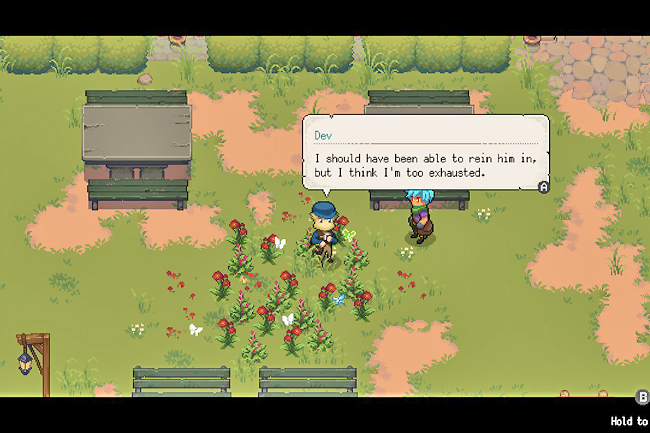

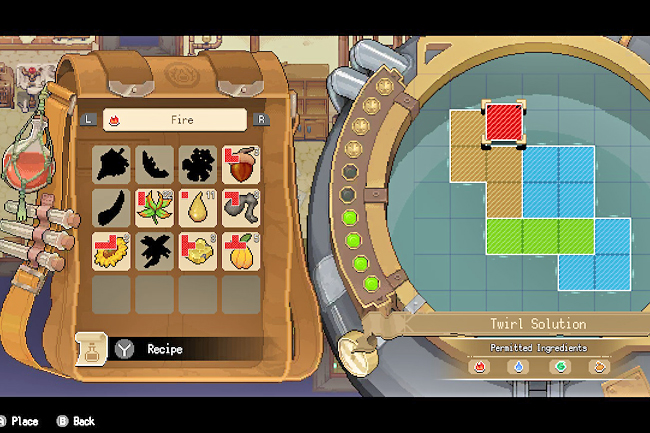

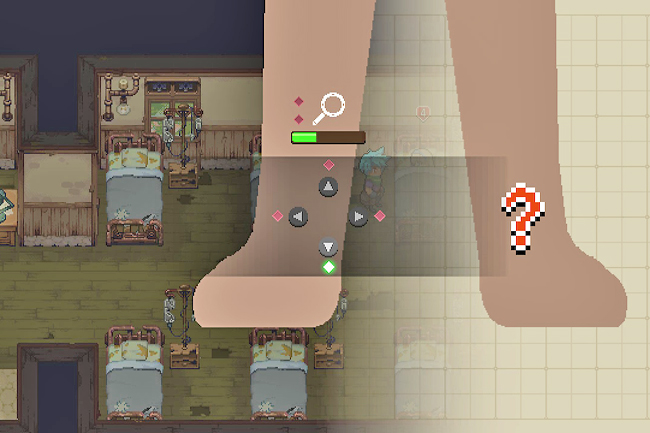
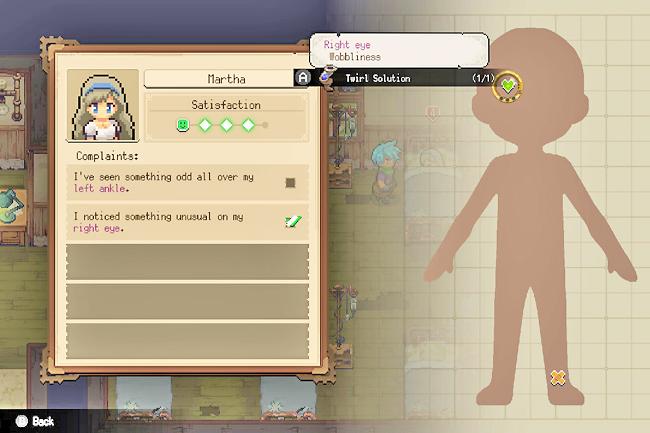
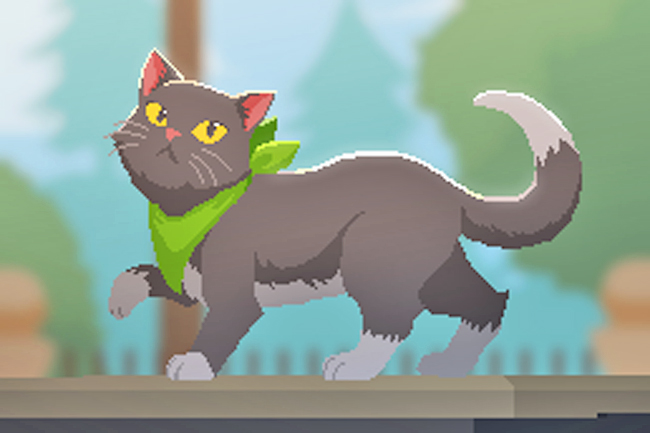

The game subtly reveals a backstory involving a previous chemist and a tragedy that not only caused loss of life but also wreaked havoc on Moonbury’s native wildlife.
So you arrive, an outsider chemist tasked with running a run-down clinic and given the capital’s notoriety among the townsfolk, your arrival is met with skepticism and at times, outright disdain.
Now, it falls to you, armed with your reliable tools and brewing cauldron, to care for the residents who occasionally make their way to your hospital bed. You’ll diagnose symptoms, collect materials, concoct potions and cure ailments, gradually earning the trust and building relationships with the community of this charming rustic town, brimming with vibrant characters.
Now, stepping into Potion Permit, I was a blank slate.
Despite frequently encountering the game cover, which fails to convey the beauty of its pixel art, I approached it with caution.
The market is flooded with Stardew Valley clones, all trying to ride the wave of cosy game popularity. However, there is no farming in Potion Permit.
Instead, the game revolves around collecting materials and crafting, presented in a manner that, while not necessarily unique, aligns perfectly with the game’s retro aesthetic that ensures an engaging gameplay loop that doesn’t grow tiresome easily.
There are several facets to this charming pixel art world, but the primary mechanic involves diagnosing illnesses and crafting potions.
These tasks distinguish themselves from each other through small puzzle games. For instance, diagnosing patients might involve a rhythm game or a memory challenge.
While these are generally straightforward, as someone with less dexterity, I found some of the rhythm game diagnostics to be quite challenging.
Upon successfully diagnosing an illness, you’ll discover the remedy, crafted from materials foraged from the diverse biomes surrounding the town.
This crafting process stands out as the most enjoyable aspect of the game. Potion crafting is reimagined as a tile puzzle game, reminiscent of Tetris, where each foraged material represents a specific tile and you must fill a shape with limited moves and materials.
Picture the dilemma of having three empty spaces to fill but only two material slots. I often found myself genuinely pondering how to fill the space with the limited materials I had.
There were moments when I almost abandoned a concoction, believing I needed a material from an inaccessible biome, only to realise I simply needed to be imaginative and work with the tiles at hand.
In Potion Permit, each patient is equipped with a satisfaction meter and a four-day countdown.
The meter decreases each time you fail a diagnosis or when your treatment is untimely, adding a layer of pressure to the gameplay loop.
The satisfaction of your patients plays a crucial role in gaining the trust of Moonbury’s community. As this trust slowly builds, you’ll begin to see a direct impact on Moonbury’s well-being.
The villagers will initiate renovations and upgrades to your clinic or home base.
Roads and bridges will be repaired, more remedy recipes will be discovered, and your interactions with the townsfolk will improve day by day.
Initially, interactions on day one are often accompanied by apprehension, but as you continue to heal the residents, the interactions become warmer.
The shining core of Potion Permit lies in its characters.
In cosy games like Potion Permit, interactions with NPCs can make or break the experience.
To truly sell the world you’ve created, the people living in it must extend beyond just a few colourful pixels.
What I found particularly intriguing was how Moonbury is teeming with characters boasting surprising backstories.
Take Dev, for instance, the reserved mailman who operates from the town hall. Despite his reserved nature, he’s quite accommodating.
However, Dev suffers from Dissociative Identity Disorder, so on certain days, he transforms into Dan, a spirited and childlike pirate who is always on the lookout for adventure.
Then there’s Garrett, an elderly man bound to a wheelchair, whose family owns and manages the town’s farmhouse.
Garrett, with his remarkably detailed wheelchair (for a few pixels), is a curmudgeon, often concluding his interactions with the chemist with a light threat of bodily harm.
Building a friendship with him reveals a deeply caring husband who dotes on his wife, going above and beyond to fulfill her hopes of finding a cure for his condition, despite having come to terms with it himself.
He is also a devoted father, supporting his son Lucke in pursuing his dream of becoming an engineer, even though he, a humble farmhand, is content with his life in the town.
The narratives of these characters may not break new ground, but there is beauty in its simplicity and earnestness.
In Potion Permit, each day is a captivating adventure filled with the thrill of discovery.
From foraging in lush forests for unique materials to crafting in your cosy workshop or engaging in heartfelt side quests to build relationships with the townsfolk, the game is comfort personified.
It strikes a perfect balance between the excitement of exploration and the tranquil joy found in life’s simple moments.
So, if you’re seeking an escape to a world that combines the serenity of routine with the allure of the unknown, Potion Permit is waiting to welcome you. – Wardi Wasil





